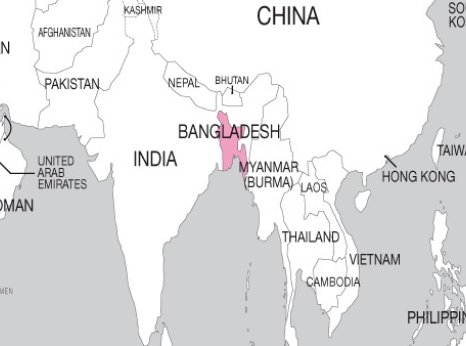Bangladesh: Over 100 Indigenous People Arbitrarily Arrested

Indigenous Peoples in Bangladesh have a long history of being persecuted, discriminated against in various socio-economic and political ways. More than 25 years ago, Chittagong Hill Tracts (CHT) Peace Accord was signed by the government of Bangladesh and the Parbatya Chattagram Jana Samhati Samiti - a political party established to defend the interests of the Indigenous Peoples of CHT - to end conflict and address systematic injustices in the region, yet, today, the situation has driven people out of their villages.
On 8 April at around 5.30am the military arrived to Bethel village, which was the closest to one of the banks that were robbed, under the assumption that the villagers should know about the robbery or the robbers, and the crackdown started. According to a family member of one of the arrested, the military demanded the villagers to gather at the school grounds, separated men and women, and randomly picked people to be arrested. Among them there were people in their late fifties and sixties. They were all taken to Bandarban police station around 8.30pm.
KNF is also alleged to have stolen 14 weapons. According to the villagers, the military has said that they would stop the mass arrests when the weapons have been retrieved. According to Bawm activists, the actual number of arrests could be much higher as they are aware of only the arrests they have found information of through contacts.
As part of the crackdown, the military ordered that each Bawm person was allowed to carry only 5kg of rice from the grocery. This has now reduced to 1kg, which is not enough to feed their families. The military has set up check points conducting random searches, and arrested Bawm people when they try to go through check points. There are around 200-300 Bawm students studying in Dhaka and other parts of the country, according to one Bawm community leader that Amnesty spoke with. These students were home on holiday just before Eid when the crackdown began. They have not yet been able to return to their schools, and some of them have been arbitrarily arrested during this crackdown.
The Bawm community, similar to other Indigenous communities in Bangladesh, survive on jhum cultivation, a shifting cultivation system in which plots of land are cultivated temporarily. This is the time period to prepare the land and cultivate it for the next harvesting year, which is completely disrupted with people having fled to jungles for survival and their movement is restricted due to arrests.
Currently there are five villages, Bethel, Pankhyang, Suanlu, Faruk, Eden, and Darjeeling under the military crackdown in the Ruma, Bandarban and Rowangchari sub districts of CHT.